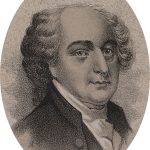 Throughout American history John Adams has mostly lingered in the shadows beneath his contemporaries George Washington and Thomas Jefferson. Washington was “first in the hearts of his countrymen.” Jefferson wrote the Declaration of Independence. Adams was a one-term president sandwiched between those two American giants that both served two terms.
Throughout American history John Adams has mostly lingered in the shadows beneath his contemporaries George Washington and Thomas Jefferson. Washington was “first in the hearts of his countrymen.” Jefferson wrote the Declaration of Independence. Adams was a one-term president sandwiched between those two American giants that both served two terms.
Adams has often been most remembered for signing into law the terrible Alien and Sedition Acts that critics said were designed to stifle Adams’ political opponents. Adams was also the only one of our nation’s first five presidents who was not an enslaver of African people.
Adams’ reputation has enjoyed a well-deserved dusting off over the past several years beginning with David McCullough’s excellent–and Pulitzer Prize winning–biography. Lindi and I recently watched the HBO series based upon McCullough’s book that stars Paul Giamatti and Laura Linney as John and Abigail Adams (available on Netflix).
For a fresh view of Adams, his contemporaries, and the founding of our nation, you can’t do any better than this book and mini-series.

Hi Thomas — my name is Sean. I’m one of the webmasters at A People’s Contest, a new blog from the Richards Civil War Era Center at Penn State (here’s our URL: http://www.psu.edu/dept/richardscenter/). I appreciated your post on Adams. I’m more of a fan of J.Q. Adams, but I admire his father as well. At any rate, I too have noticed the recent rehabilitation of Adams’s memory. Any thoughts on why — besides the McCullough biography? Does he speak to something about contemporary life or politics? Thanks!
Hi Sean, thanks for writing. Your website/blog looks great. I'll enjoy following it as you develop it further.
My sense is that over the past few decades we've begun to see more scholarship becoming available as historians, researchers, and others from a variety of starting points revisit American history from perspectives that haven't been considered much in the past. Traditionally American history has been taught with a focus on what powerful, influential white men did. More recently we're seeing writers, filmmakers, teachers, and others take a fresh look at history and see things in a more balanced and honest way. Washington and Jefferson are now viewed through different lenses as more information comes out about their roles in the perpetuation of slavery. Adams, who has played second fiddle to those giants has also been given a new look by people like McCullough and others. Alex Haley had white people rooting for black people in Roots. Howard Zinn shined a whole new light on history by showing it from the perspective of the disenfranchised and the oppressed. I find it quite refreshing and hopeful that we now regularly see books like Slavery By Another Name, On The Courthouse Lawn, The Washingtons of Wessyngton Plantation, The Hemingses of Monticello, and others that uncover previously buried or hidden aspects of history.
I believe you're onto something. It's about contemporary life in that we live in a time where so much information is available more readily than in the past and many folks are more open to reinterpretation of historical events and people. AND it's also quite political–both the hiding of shameful history and removing the veil from it.
I'm excited about the next few years and the 150th anniversary of the Civil War. I suspect there will be a lot of information being highlighted in new ways that will help us understand that time in our history with fresh eyes. I'm starting to be asked more often now to speak in connection with the Civil War so I know that people are hungry for more information.
I'm excited about it. Revealing more of the truth of our history–the good and the less than savory–will make us more informed and better citizens in a world that desperately needs both.